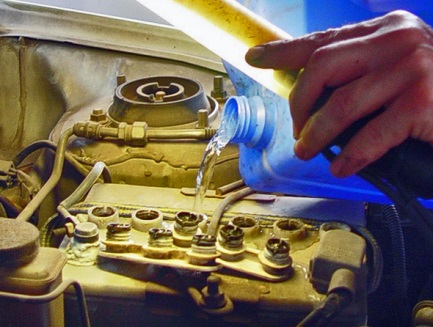
The smell of spring is in the air! With winter fading quickly from memory, many of us are starting to plan ahead for long trips and dream vacations. Before hitting the road and leaving town, it’s important to remember that the winter wasn’t easy on your vehicle. You should perform a full inspection, to make sure you don’t end up stranded on the side of the road.
Winter driving usually means a lot of idle time for our vehicles. Extended warm-up times and slower commutes because of poor road conditions can take their toll on them. Exhaust systems don’t heat up and moisture rusts them from the inside out. Brake calipers have corroded slides, causing brakes to drag and tires to wear. All of these problem areas need to be checked. Many garages will advertise spring tune-ups specials, but the word “tune-up” can mean many things. If you end up getting a professional with Auto Mechanic Training to do the work for you, make sure to check exactly what the repair shop will do during the tune-up. Of course, if you want to gain the skills to become a mechanic, it’s recommended to get your hands dirty and do the work yourself!
Change the oil
An easy starting point, changing the oil in your vehicle is one of the most important things you can do to keep your car running well. Over time, your oil will break down and your filter will become clogged with contaminants. The time this takes depends on your driving habits and type of vehicle, but it’s a safe bet that, after a long winter, your car will be thankful for a much needed oil change. Fortunately, changing your oil is both easy and inexpensive.
Clean your car, inside and out!
If left alone, salty slush and acid during the winter months can damage your car’s finish. A good scrub can restore your car’s shine and prevent further damage. Plus, by cleaning and reorganizing the interior of your car, you’ll have plenty of packing space for long trips involving a lot of extra baggage and material.
Check your tire pressure
As you exchange your winter tires for all-season tires, make sure to check their condition. Monitoring your tire pressure is always a good idea, especially as one season transitions into another. The owner’s manual of your vehicle can specify a recommended pressure, so make sure your tires are up to standard. As a bonus, by keeping your tires at the appropriate pressure, you’re likely to improve your gas mileage.
Replace your wiper blades
Your wiper blades are often at the mercy of harsh winter weather, and so may need to be replaced. With new blades, you’ll be equipped to handle any rain that comes your way this season!
Test the battery
Any student from an auto mechanic school will tell you that car batteries last an average of five years, so make sure to test yours once a year. Don’t wait until you get stranded! If it’s been more than five years, you may need to replace your battery with a new one.
